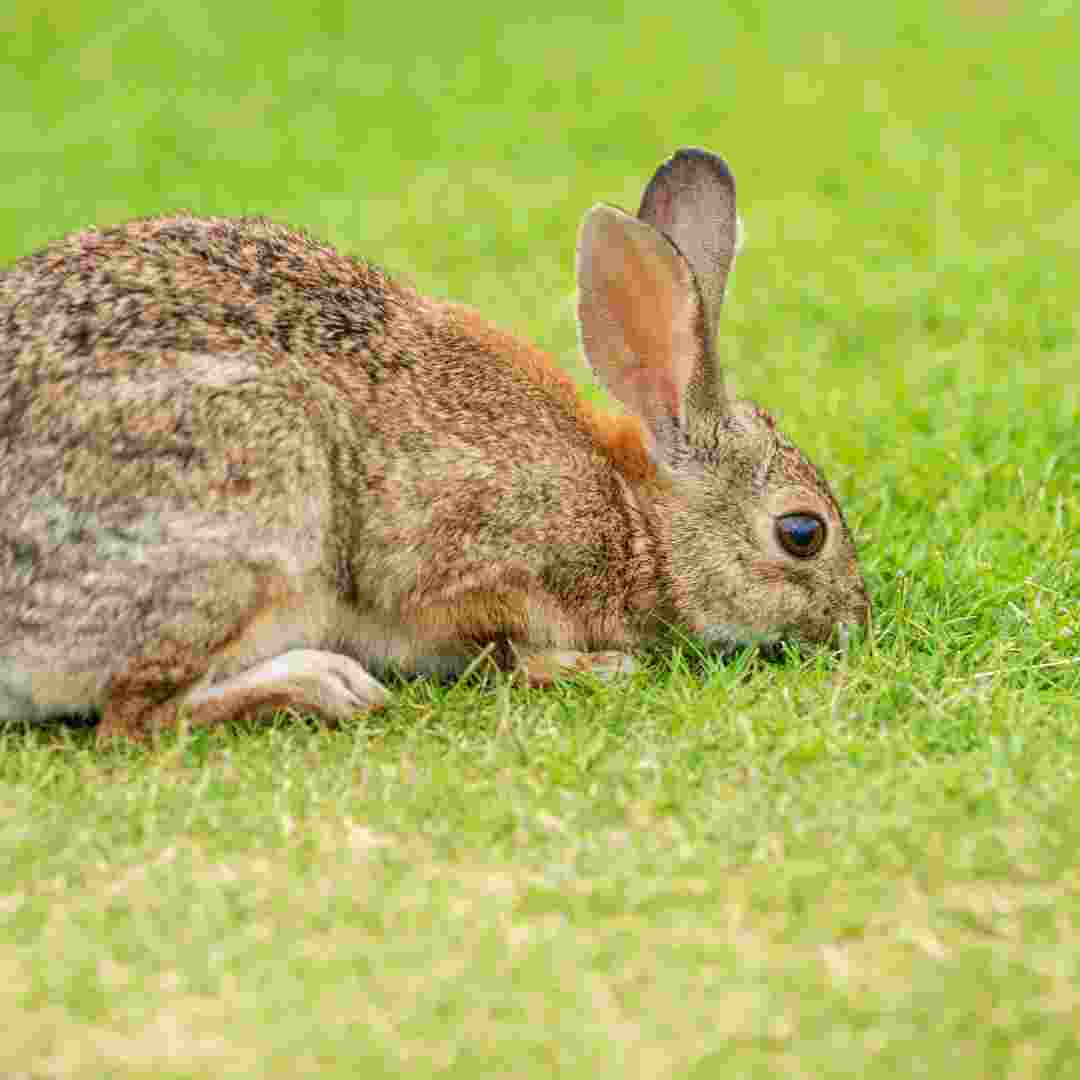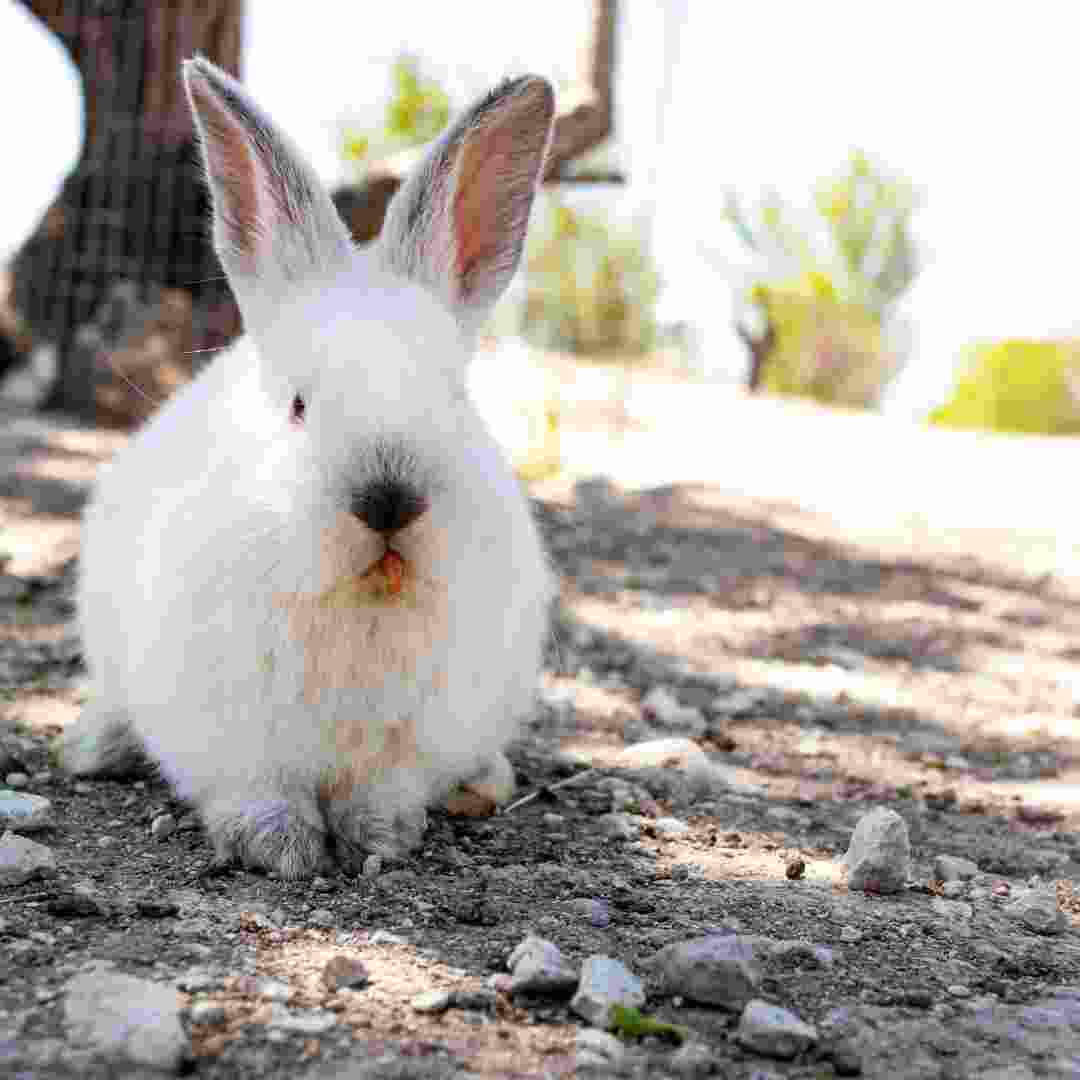Contents
Introduction
Satisfied Rabbit Behaviours
Create a Happy Rabbit with Stimulating Environment
Building a Good Relationship with Your Rabbit
Rabbit Nutrition: How to Keep Your Pet Healthy and Happy
Identifying and Treating Rabbit Stress: When to Seek Veterinary Care
Q&A
Conclusion
Introduction
Rabbits are social and need affection to be happy. Making sure your bunny is happy is crucial to their health. Look for these clues to see if your rabbit is happy and healthy. Playing, hopping, and grooming are behavioural markers, as are a relaxed posture, bright eyes, and a clean coat. You can keep your rabbit happy and healthy by watching its behaviour and body language.
Satisfied Rabbit Behaviours
Rabbits are social and good pets. They are smart and bond well with owners. To keep your rabbit happy and healthy, learn the signs of happiness.
A happy bunny is curious and active. They'll explore and interact with owners. They will be vigilant and may meet you as you enter. A happy bunny is tranquil. They'll be nice to handle and pet.
A healthy rabbit has shiny fur and bright eyes. Eat eagerly since they have a good appetite. Their bowel motions and grooming will be regular.
Happy rabbits talk. Purring, chirping, and banging are sometimes heard. When happy, they may purr.
Look for evidence of contentment in your rabbit's behaviour. Rabbits with any of the aforementioned behaviours are likely healthy and happy. If your rabbit's behaviour changes, take them to the clinic.
Create a Happy Rabbit with Stimulating Environment
A stimulating environment is vital for your rabbit's happiness. Intelligent and social rabbits need a cognitively and physically engaging environment. Rabbit stimulation tips:
1. Give space. Rabbits require lots of area to explore. A big, contained space with toys and hiding spots is perfect.
2. Provide several toys. Toys entertain and stimulate rabbits. Include tunnels, balls, and chew toys.
3. Provide many hiding places. Safe hiding places are essential for rabbits. Give your rabbit boxes, tunnels, and other hiding places.
4. Offer lots of enrichment. Your rabbit may stay cognitively occupied by foraging, digging, and playing with toys.
5. Encourage socialising. Rabbits are social and need owners. Give your bunny attention and playtime.
Create a stimulating environment for your rabbit to ensure their pleasure by following these guidelines.
Building a Good Relationship with Your Rabbit
To have a good relationship with your rabbit, bond with it. Rabbits are gregarious animals who thrive on security and love. Spending time bonding with your rabbit helps build trust and understanding.
Making your rabbit feel safe and comfortable is the first step to bonding. They need a large, clean cage or hutch to roam and explore. To keep them busy, give them lots of toys and activities. Also, give them a variety of fresh vegetables and hay to guarantee optimum nutrition.
Start bonding with your rabbit after creating a safe and comfortable habitat. Talk to and pet your bunny daily. This will familiarise them with your voice and touch, making them more comfortable with you. Treat your bunny tenderly and respectfully. This will increase trust and bonding.
You may bond with your rabbit by giving them lots of activity and exploration. Take your rabbit outside for supervised play or give them a large playpen or exercise pen. This will help them keep active and healthy and let them explore their surroundings.
In conclusion, give your bunny lots of love and care. Play and cuddle with your bunny and praise excellent behaviour with treats. This will help them feel safe and cherished and strengthen your bond with your pet.
You can bond with your rabbit and build a good friendship. Feeling secure and loved will help kids be happy and healthy.
Rabbit Nutrition: How to Keep Your Pet Healthy and Happy
Your rabbit needs good diet to stay healthy and happy. As herbivores, rabbits need a high-fiber, low-fat, protein diet. To ensure your rabbit gets enough nutrients, feed it hay, fresh veggies, and a little pellets.
Rabbits should eat mostly hay. Fiber-rich, it aids your rabbit's digestive system. Rabbits prefer Timothy hay, which is heavy in fibre and low in protein and calcium. As a natural forager, feed your rabbit hay all day.
Rabbits should eat fresh veggies. Include carrots, celery, and kale. So avoid sugary foods like corn and peas. Because too much vegetables can disturb digestion, provide minimal amounts.
Your rabbit needs hay, vegetables, and a few pellets. Rabbits should consume no more than 10% pellets, which contain concentrated nutrients. A rabbit-specific pellet will have the right nutrition.
Fresh water is also essential for rabbits. Change the water regularly and clean the dish.
By following these instructions, you may feed your rabbit properly to keep it healthy and happy. A healthy rabbit diet includes hay, fresh veggies, and a little pellets.
Identifying and Treating Rabbit Stress: When to Seek Veterinary Care
Rabbits need lots of attention and are gregarious. They can be stressed, unfortunately. Recognising stress in your rabbit helps you lessen it and protect its health.
Rabbit stress signs
There are various indicators of rabbit stress. Includes:
Rabbits may become hostile, reclusive, or overgroom.
• Changes in appetite: Stress can make your rabbit eat more or less.
Stress might induce rabbits to urinate or defecate outside the litter box.
Stress can fade and mat rabbit fur.
Stress might make a rabbit more or less active.
Rabbit Stress Management
If your rabbit exhibits any of these stress signals, take action. Stress-reduction tips for rabbits:
• Provide a safe and pleasant environment: Give your rabbit plenty of room to explore and rest.
Daily play and interaction with your bunny.
• Engage your rabbit with toys and other enrichment activities.
Make sure your rabbit gets a balanced diet of fresh veggies and hay.
Veterinary Care When?
Take action if your rabbit shows indications of stress. Veterinary attention is needed if symptoms persist or worsen. A veterinarian can identify and treat stress.
You may help your rabbit stay healthy by recognising and reducing stress. Veterinary attention is needed if stress symptoms intensify.

Q&A
1. What are the symptoms of a happy rabbit?
A: A happy rabbit looks calm, grooms, plays, hops, and interacts with you.
2. How do I know my bunny is happy?
A: Your rabbit is happy when they feel relaxed, groom themselves, play, hop around, and interact with you.
3. Which behaviours suggest rabbit distress?
An dissatisfied rabbit hides, avoids interaction, doesn't eat, and acts aggressively.
4. How do I make my bunny happy?
A: Offering a safe and comfortable habitat, plenty of area to roam, and plenty of toys and activities will keep your rabbit happy. Spend time with your rabbit and show them love.
5. Should I address my rabbit's discontent?
If your rabbit seems sad, take action. Set up a safe, comfortable, and spacious atmosphere for them to explore. Make sure to spend time with them and provide them lots of toys and activities. Consult a vet if the problem persists.
Conclusion
Finally, several signs imply a contented rabbit. These include a calm posture, the desire to communicate with you, a good appetite, and an interest in its surroundings. These indicators indicate your bunny is pleased.
